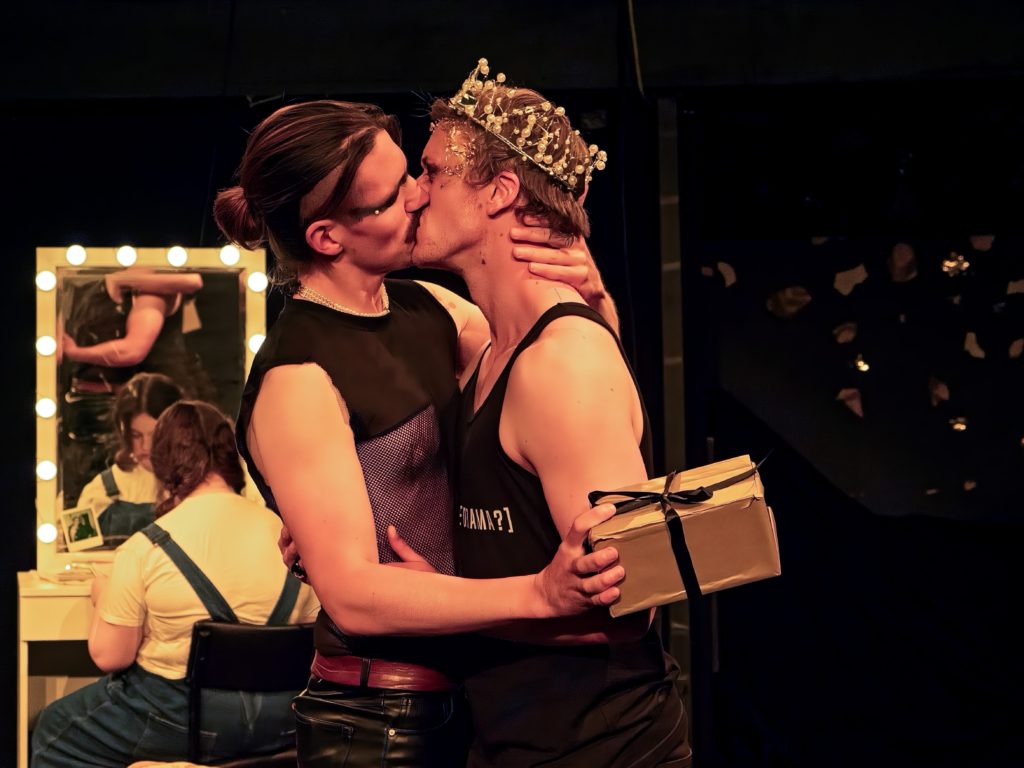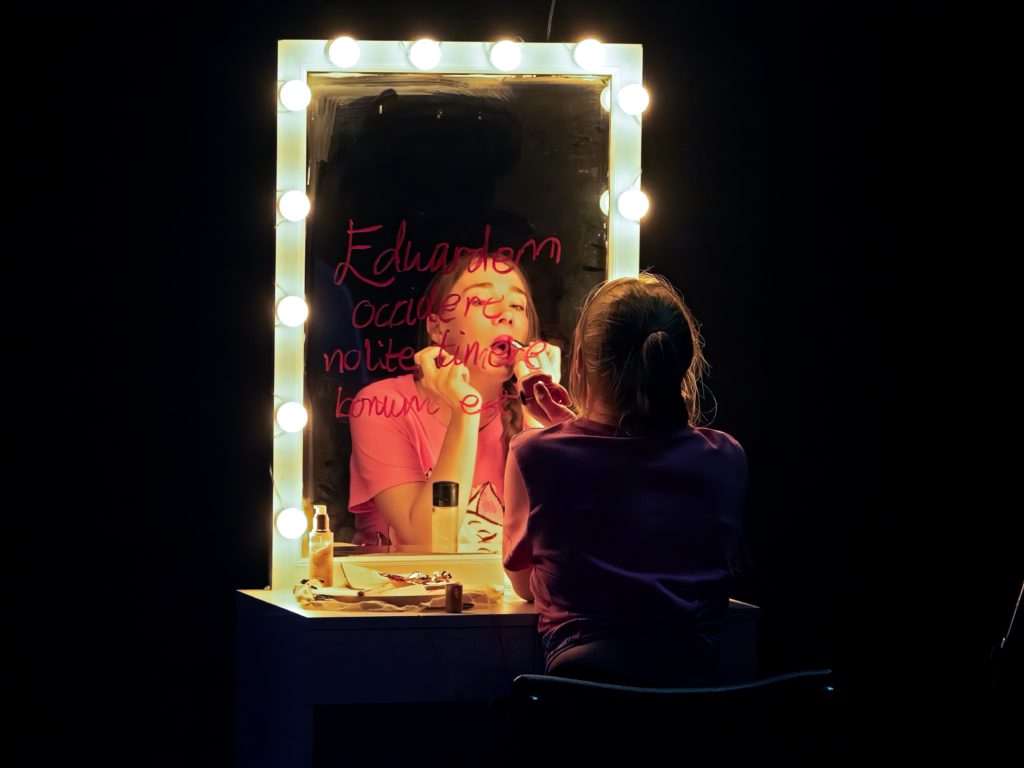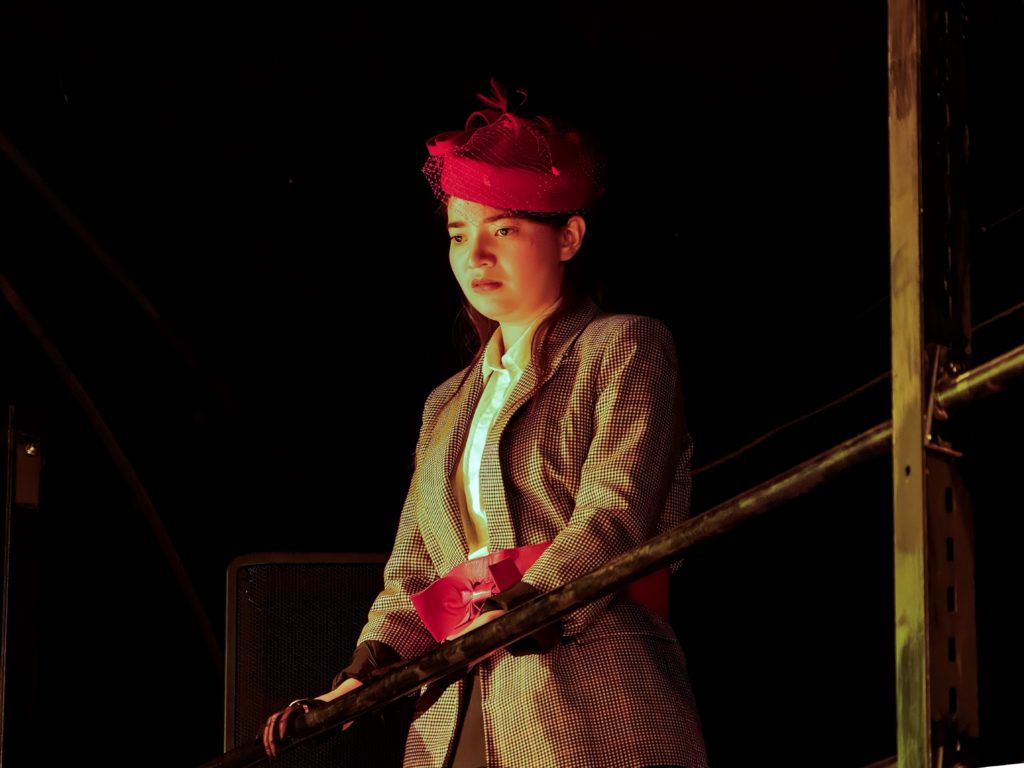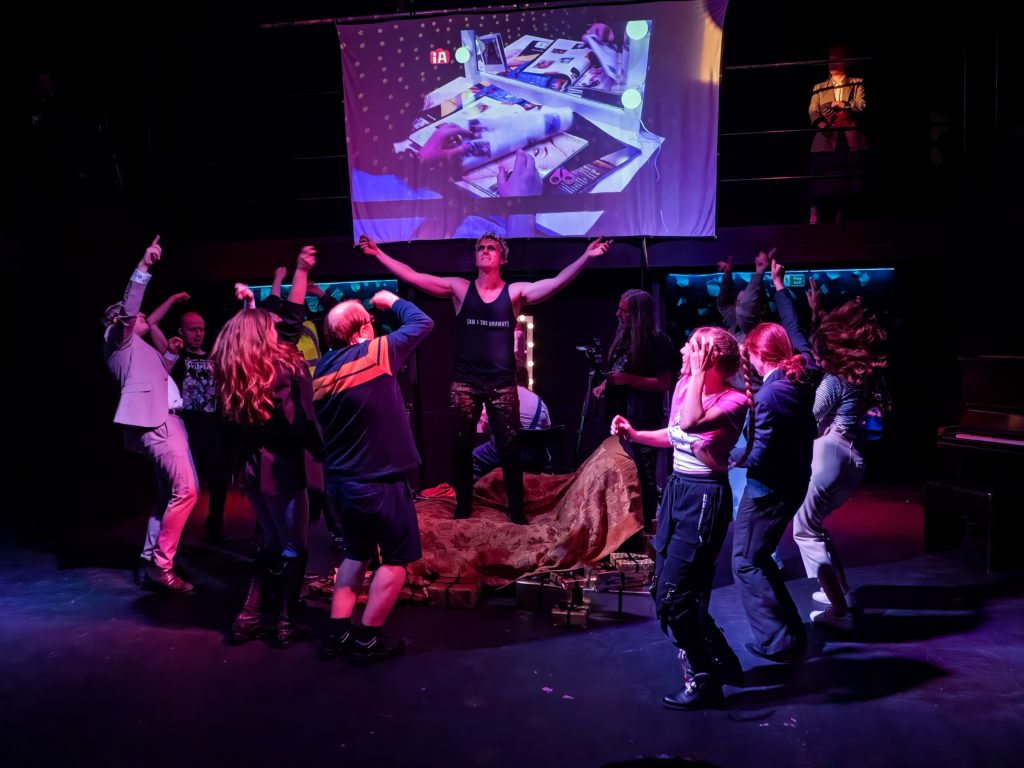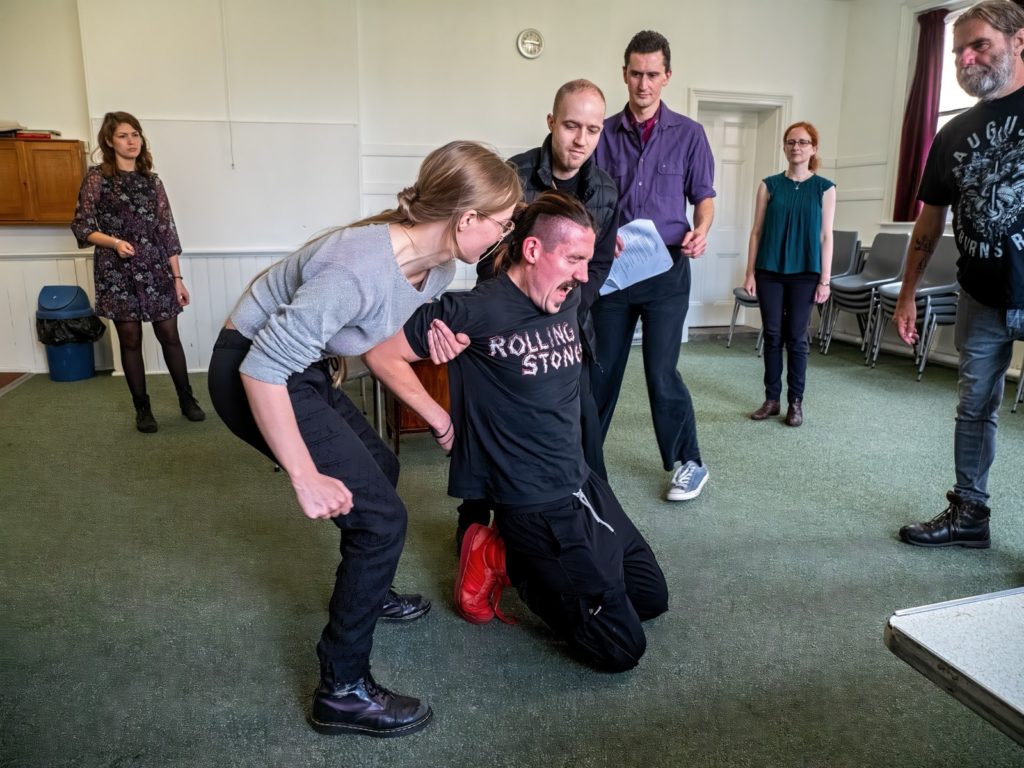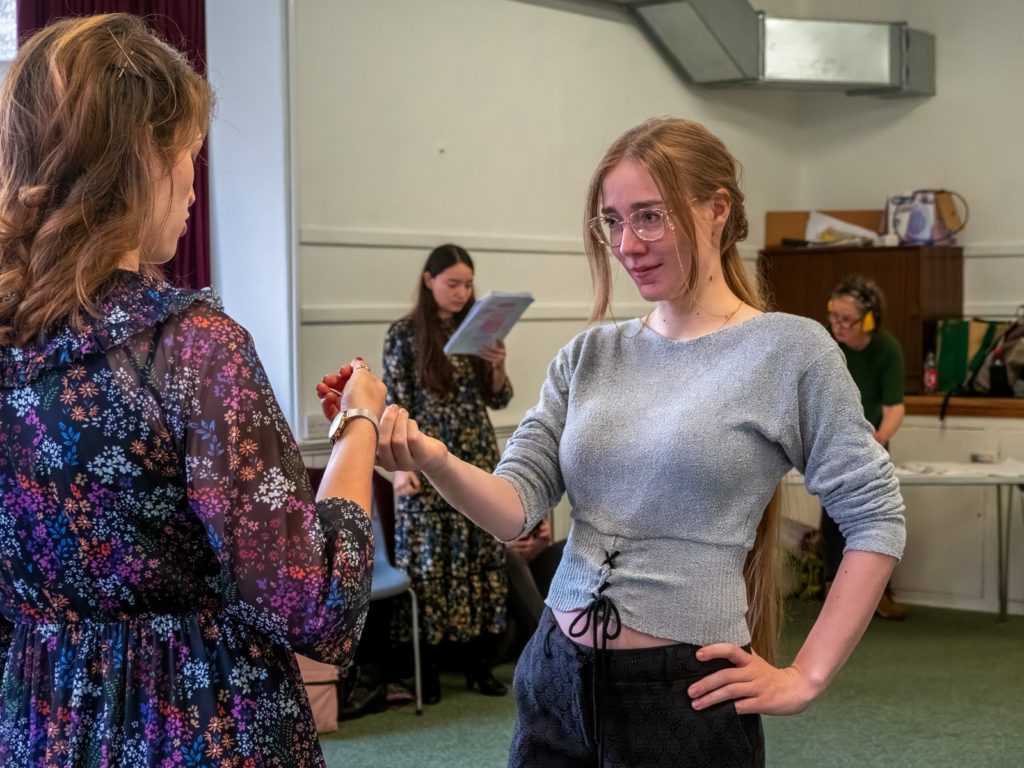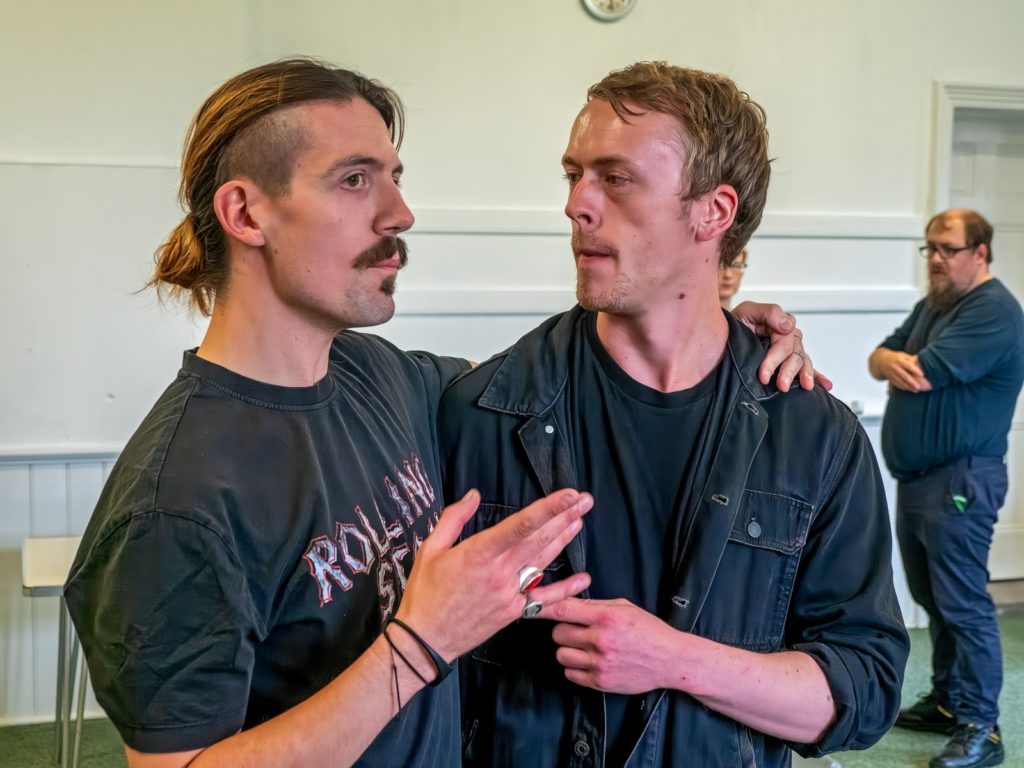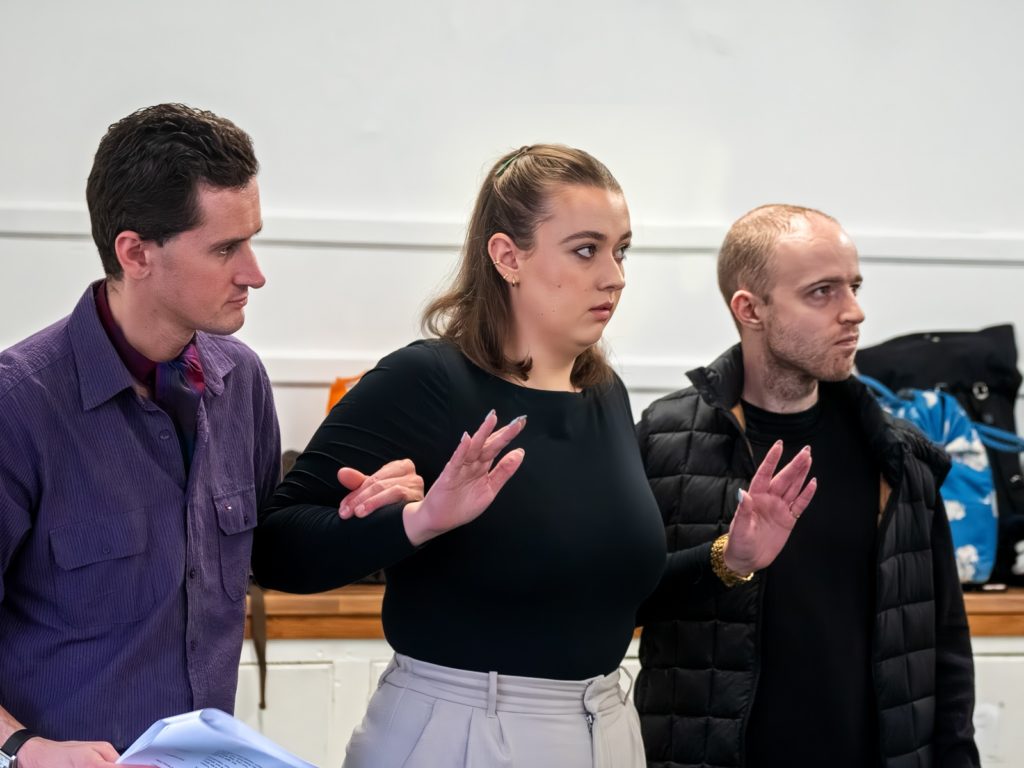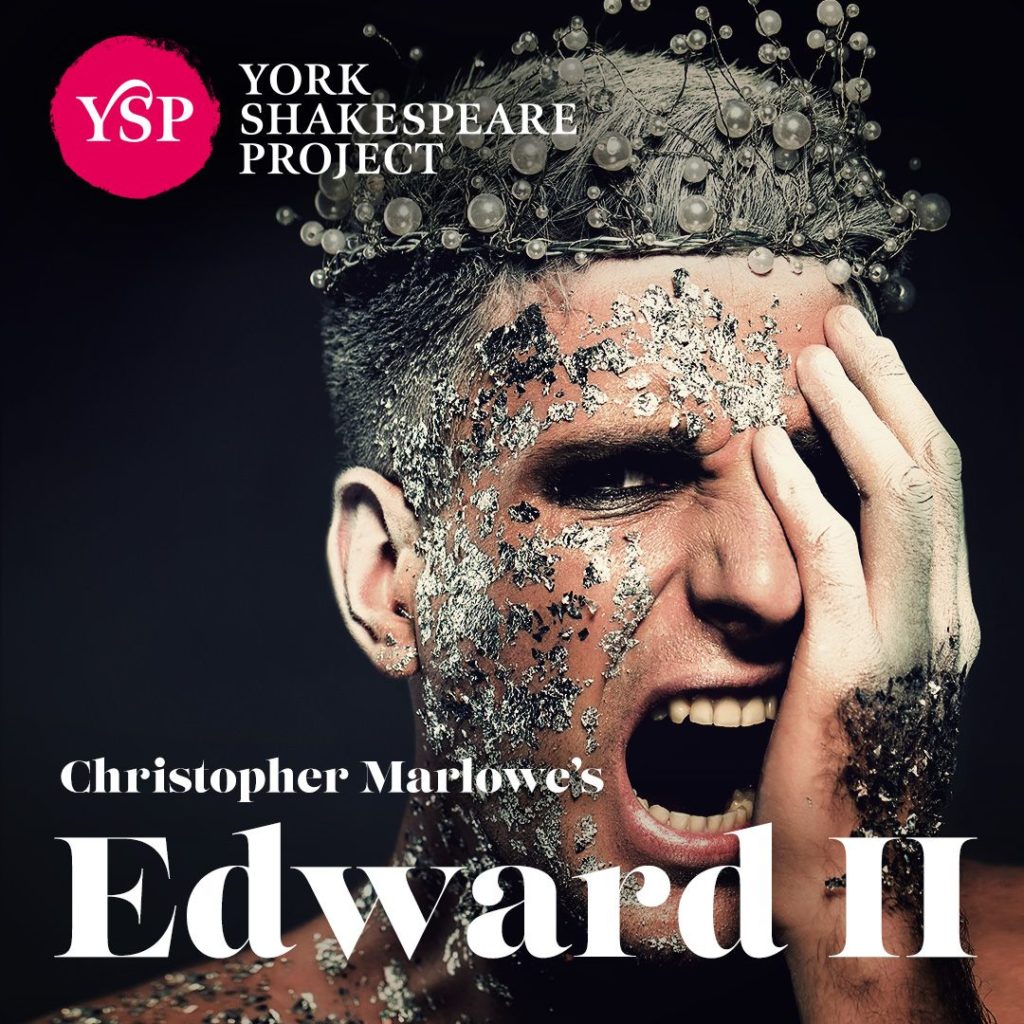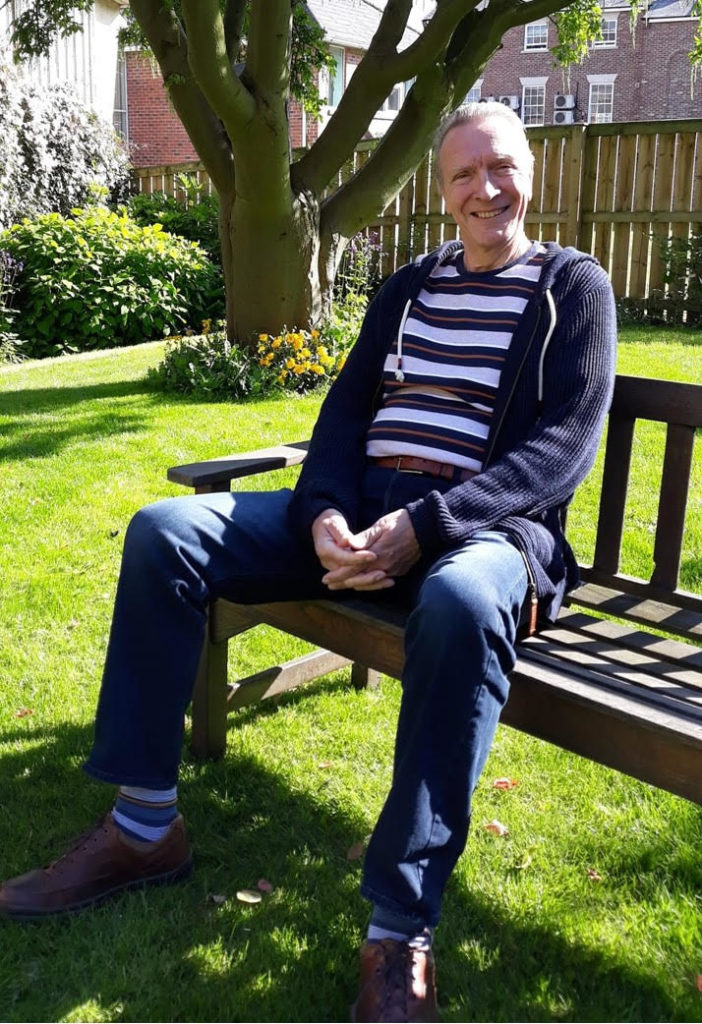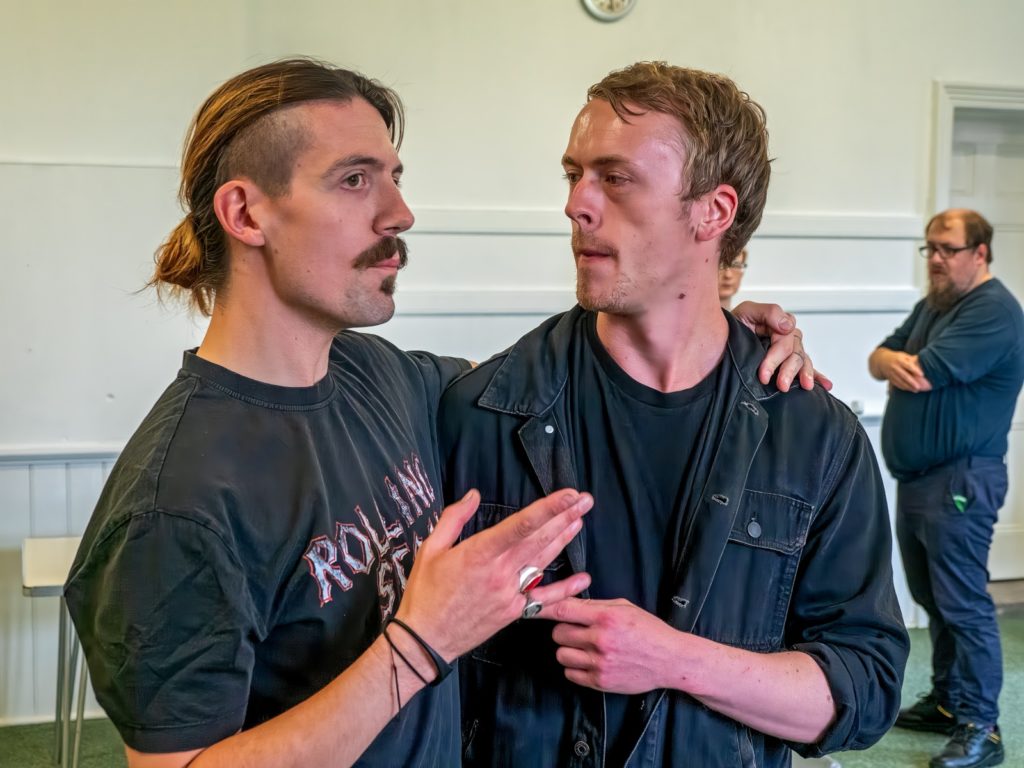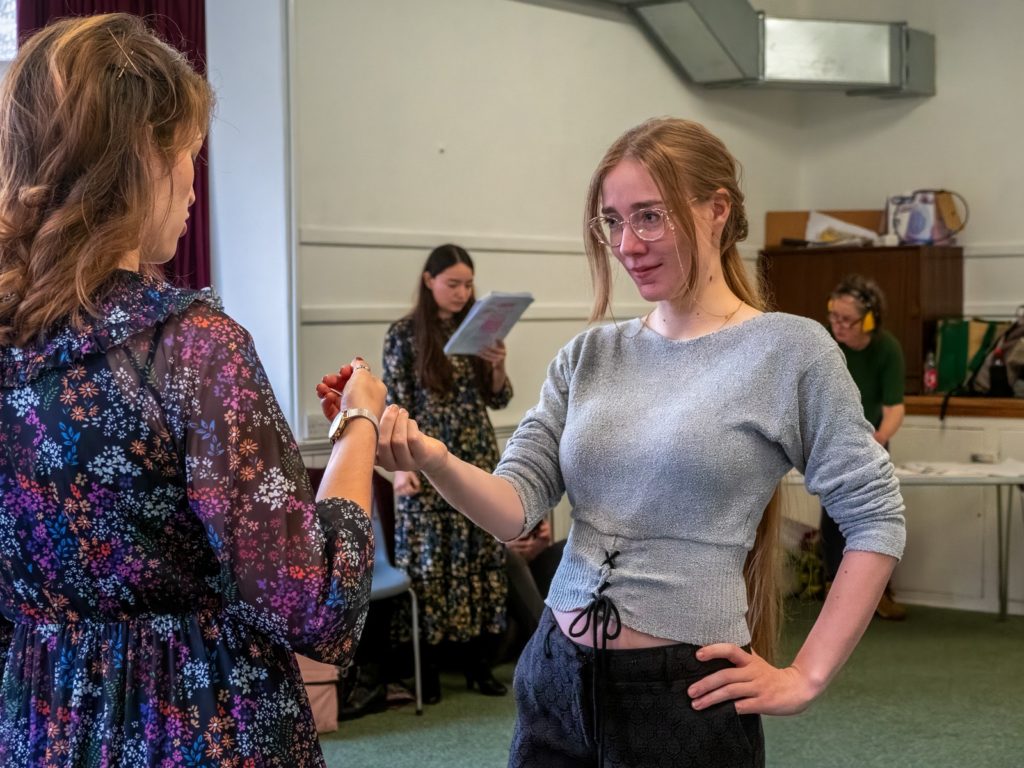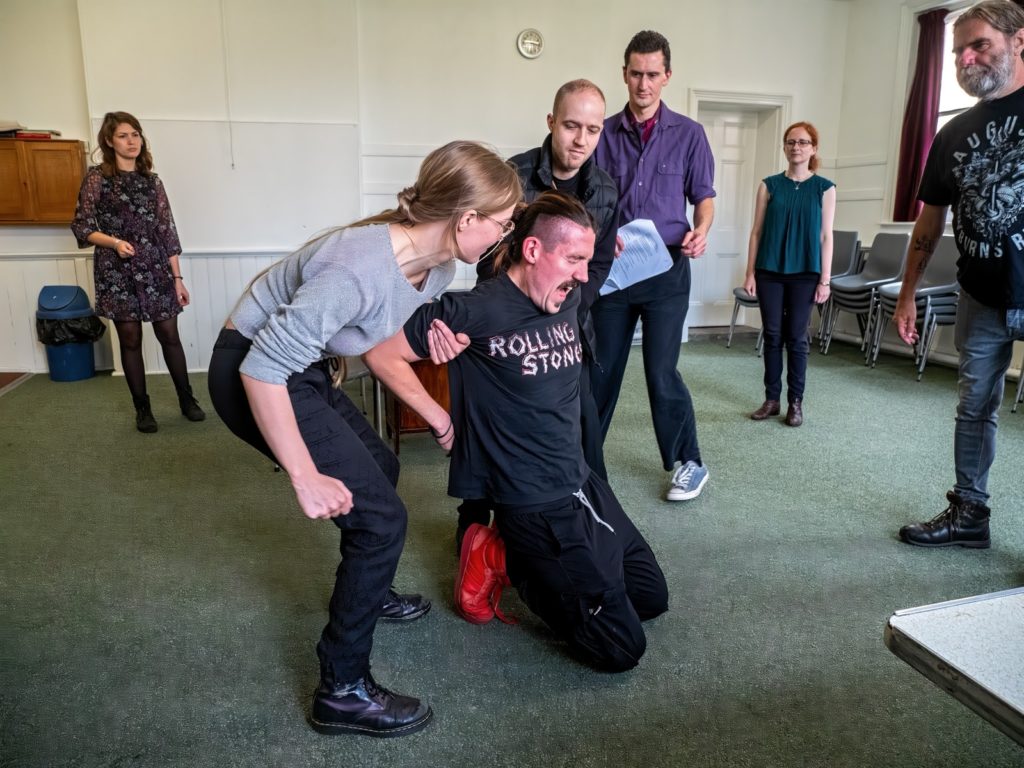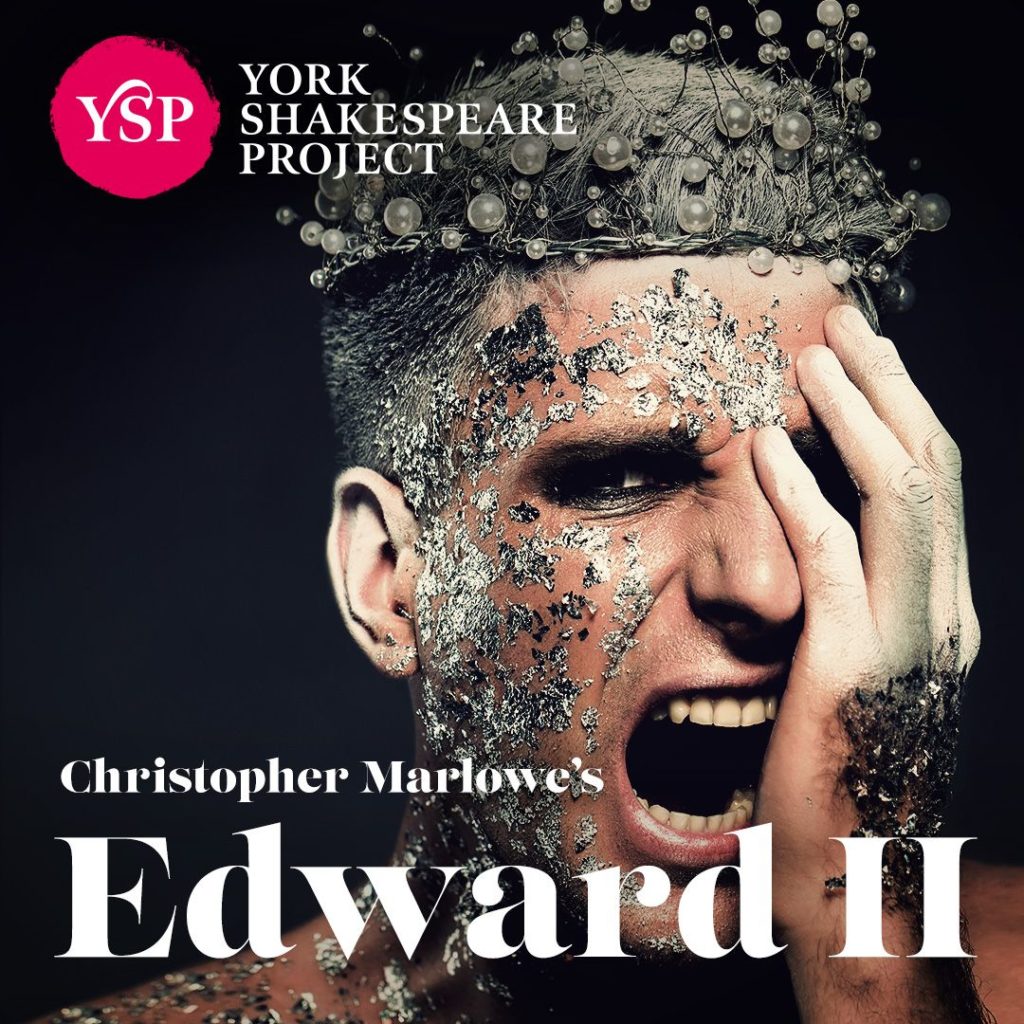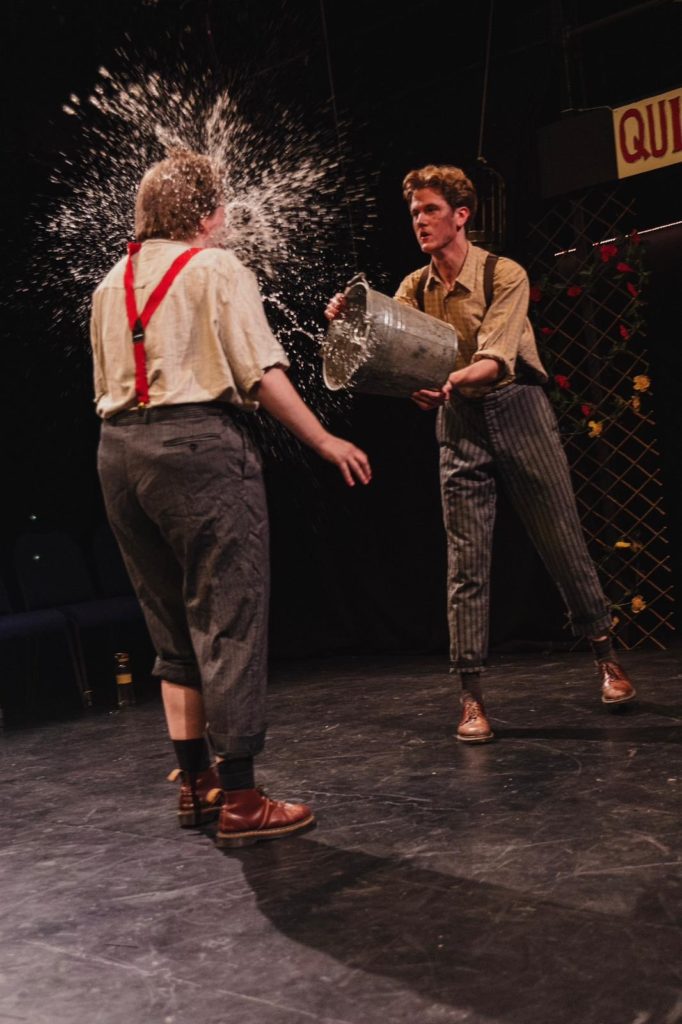
Making a splash: Katie Leckey’s Darby and Ben Koch’s Taig in The Bogie Men in Griffonage Theatre’s FourTold showcase of Lady Augusta Gregory plays. Picture: John Stead
THIS is a landmark production by Griffonage Theatre, the York company that likes to make the familiar strange and the strange familiar.
Certainly Lady Augusta Gregory’s plays would qualify as unfamiliar, but maybe it is not so strange that they are strangers to the British stage. They were, they are, Irish plays about Irish people for Irish actors and Irish audiences, presented predominantly at Dublin’s Abbey Theatre and in America too but rarely crossing the Irish Sea.
Now, Katie Leckey, Northern Irish actor-director, University of York MA graduate and co-founder of Griffonage Theatre, is presenting her adaptation of four of the late-blooming County Galway playwright’s largely forgotten one-act plays, penned from 1903 to 1914 and never previously staged together over here.
This is a passion project for Leckey, a Lady Augusta enthusiast with plans to study the “criminally under-performed” plays of the Roxborough rural estate dramatist, folklorist and Abbey Theatre co-founder for a PhD. Theatre@41, sure to become increasingly experimental under Tom Bellerby’s directorship, is just the place to dust off her ladyship’s light comedies for reappraisal.
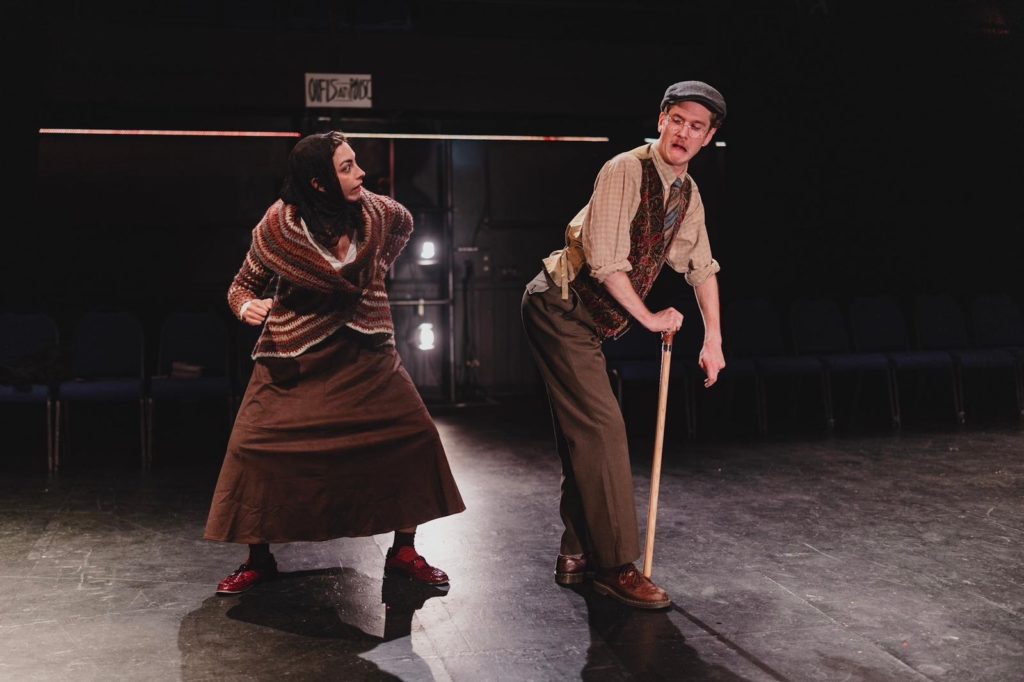
Grace Palma’s Mrs Tarpey and Ben Koch’s James Ryan in Lady Augusta Gregory’s one-act comedy drama Spreading The News. Picture: John Stead
The black-box theatre takes on a traverse configuration, the audience seated to either side of the combustible capers that unfold in Baile Aighneas, or “The Town of Dispute”, as Leckey terms it to reflect how each play is so disputatious.
As presented in the Fay Brothers’ house style at the Abbey Theatre, performances would focus on the storytelling, the voice, the lyrical Irish dialect. Leckey emphasises that too, but rather than “park and bark” theatre, she has favoured the injection of physicality, both in the presentation of that language and in the characterisation, now rooted as much in movement as meter.
You might see parallels with Dylan Thomas’s Welsh village Llareggub in Under Milk Wood; Leckey sees the plays as a “snapshot of a very strange rural Irish town: like Royston Vasey, home of The League Of Gentlemen, meeting Father Ted”.
The League Of Gentlemen is closest to the exaggerated comedic style here, where the comedy may be billed as light but is invariably darker and more heavy handed in performance. The audience laughter comes more from the physicality than Gregory’s often truculent dialogue, penned in Irish dialect but now performed in myriad accents.
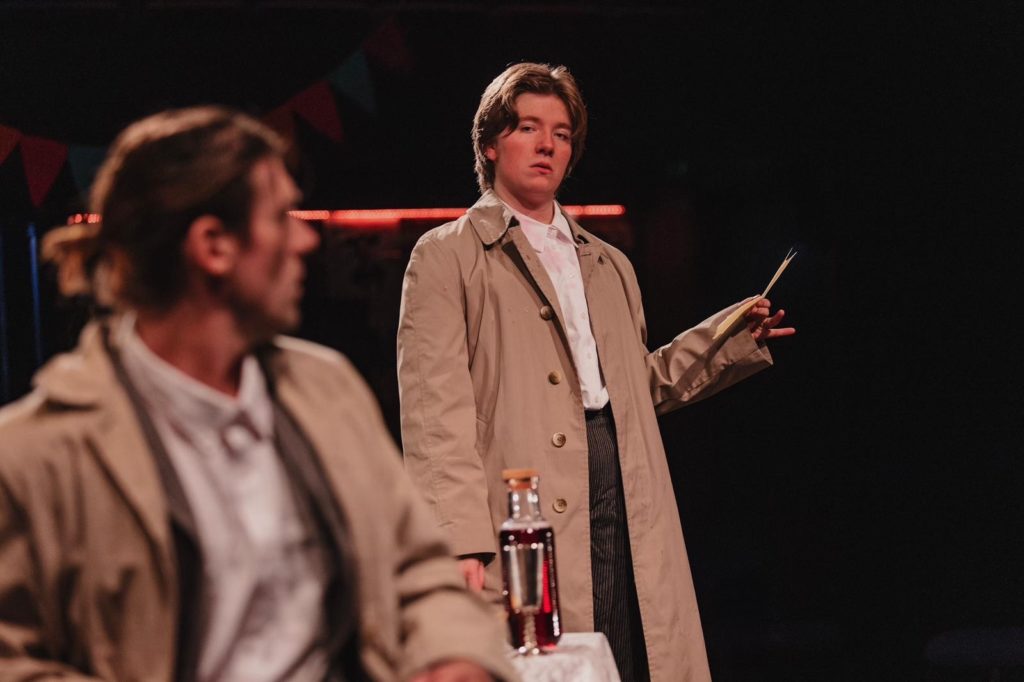
Clash of coats: James Lee’s Mr Mineog and Katie Leckey’s Mr Hazel, newspaper editors writing each other off in Lady Augusta Gregory’s Coats. Picture: John Stead
What’s more, being convoluted and percussive in sentence structure, its loquacity can make it hard to follow. The tendency is for the playing to be so boisterous in pushing for the laughs that combative voices become cacophonous, but pumping up the volume is no guarantee to tickle the funny bone.
Blarney and bluster are the heartbeat of the four plays, first up the bustling market place of Spreading The News, where town gossip wreaks havoc, rumours spiral beyond control, apples and maybe blood is spilled, tongues wag and Leckey’s tricycle-riding magistrate is a law unto himself, imagination running roughshod over the truth.
Ben Koch’s James Ryan, spiralling around his walking stick, and Grace Palma’s bow-legged, bent-double Mrs Tarpey bring clowning personality to their roles.
Coats has the classic comedic structure of a mix-up: two coats being taken off, then the wrong one being put back on, with a piece of paper in the pocket of each coat now being in the possession of the wrong person.
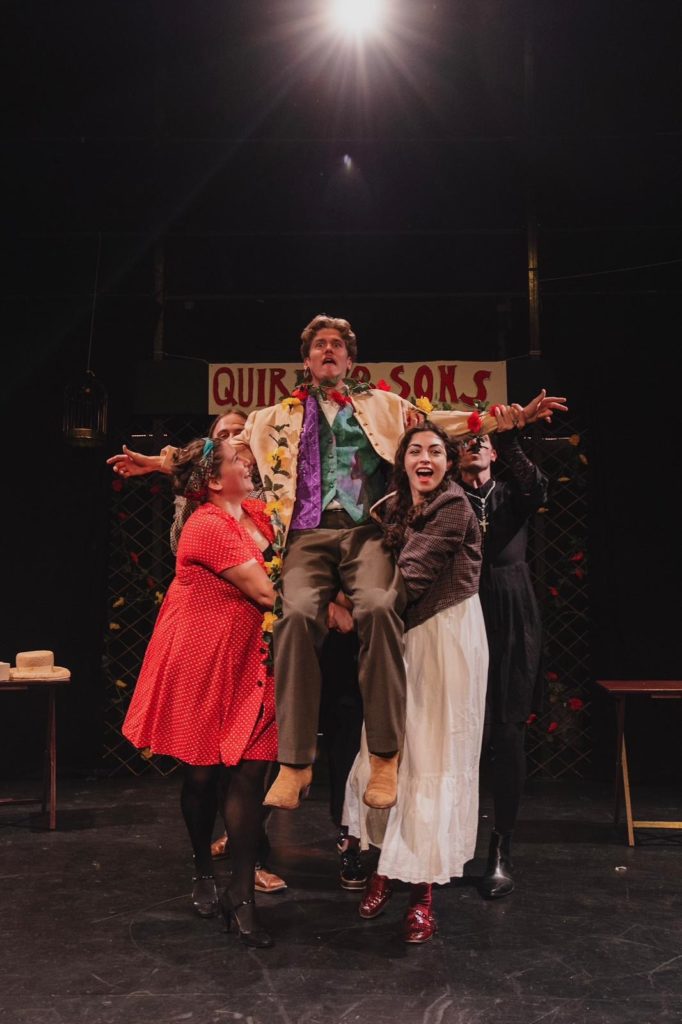
Cheered to the rafters: Ben Koch’s Hyacinth Halvey in Lady Augusta Gregory’s Hyacinth Halvey at Theatre@41, Monkgate. Picture: John Stead
Caught in a war of words are two highly competitive newspaper editors, James Lee’s Mr Mineog and Leckey’s Mr Hazel, who have brought each other’s obituary notice to their club restaurant, where polite etiquette comes under ever greater threat as the heat and volume rises in the serpentine scheming.
Next stop, the post office, where Hyacinth Halvey (Ben Koch) has sent word he is coming to town. The young dandy’s reputation precedes him, sending the townsfolk into a frenzy, hanging on his every word on arrival, no matter what he says. Wilf Tomlinson’s preening James Quirke comes to the fore too as Koch’s Hyacinth takes everything in his stride.
Leckey and executive producer Jack Mackay’s company like their shows to stand at the intersection of the madcap and the macabre. Gregory tends more towards the madcap, although the macabre, or maybe the grotesque, nudges into Spreading The News and Hyacinth Halvey.
The climactic two-hander The Bogie Men could be a forerunner of fellow Irish playwright Samuel Beckett’s 1952 tragicomedy Waiting For Godot, with its chimney-sweep protagonists, Leckey’s Darby and Koch’s Taig, forging a double act in Vladimir and Estragon mode, in matching brace, shirts, trousers, boots and even battered hats at one point.
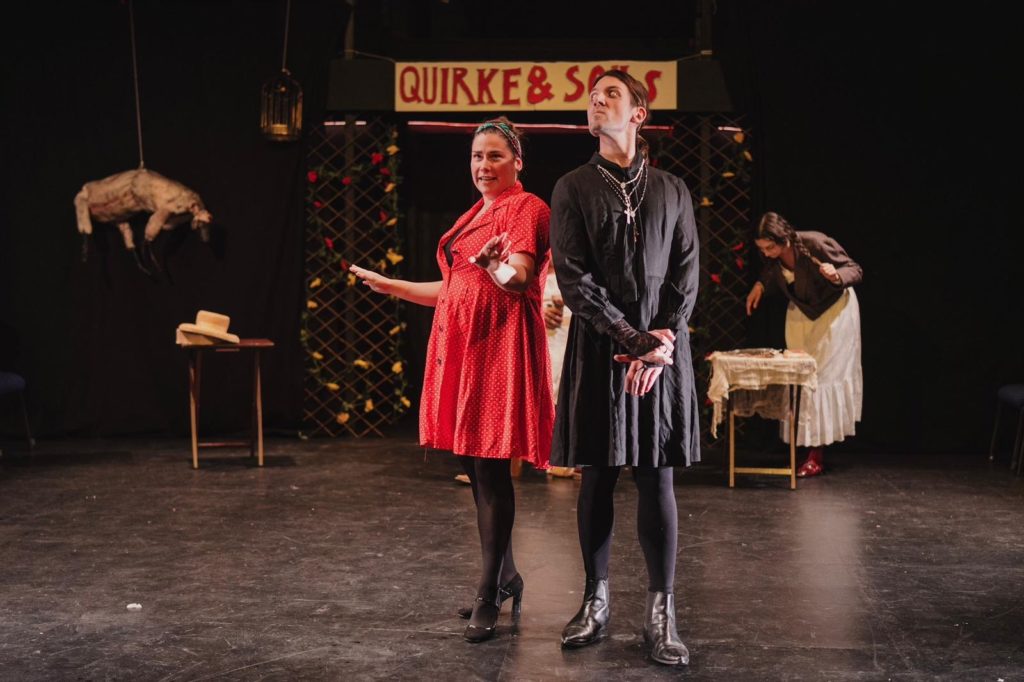
Helen Clarke-Neale’s Mrs Delane and James Lee’s Miss Joyce in Griffonage Theatre’s Hyacinth Halvey. Picture: John Stead
Rather than passing the time waiting for Godot, they find themselves at a coach stop, “almost indistinguishably similar” but soon finding mutual reasons to argue and fall out. Again, the volume is turned up as high as Spinal Tap’s “11”, but Koch and Leckey elicit the show’s most successful comic friction.
Helen Clarke-Neale, Emily Carhart and Peter Hopwood add to the ensemble’s colourful characterisation, while James Lee cos-plays mischievously as Mrs Tully and Miss Joyce.
Joined by Leckey’s lusty vocals for Irish pub songs in the interval, Ayse Kaban-Bowers delights with her fiery fiddle when playing between plays.
Truth be told, FourTold is unlikely to spark a nationwide rush to rediscover Lady Augusta Gregory’s obscure curiosities, but Leckey’s enthusiasm is matched by a cast determined to re-light their fire in explosive fashion.
Griffonage Theatre presents FourTold, Theatre@41, Monkgate, York, until Saturday, 7.30pm plus 2.30pm Saturday matinee. Box office: tickets.41monkgate.co.uk.
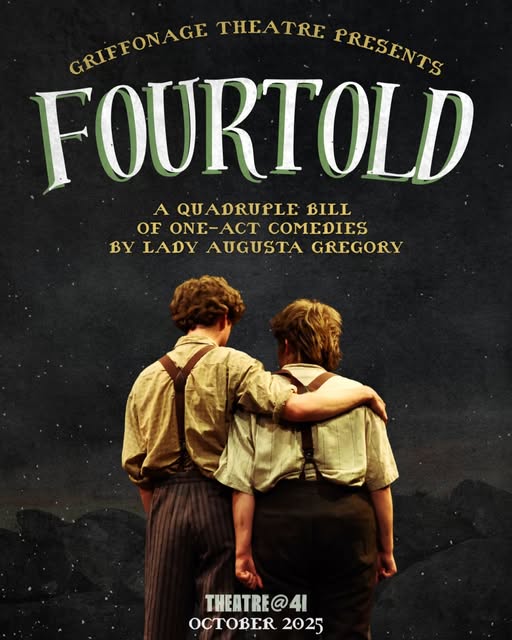
Griffonage Theatre’s poster for this week’s quadruple bill of Lady Augusta Gregory comedies at Theatre@41, Monkgate



